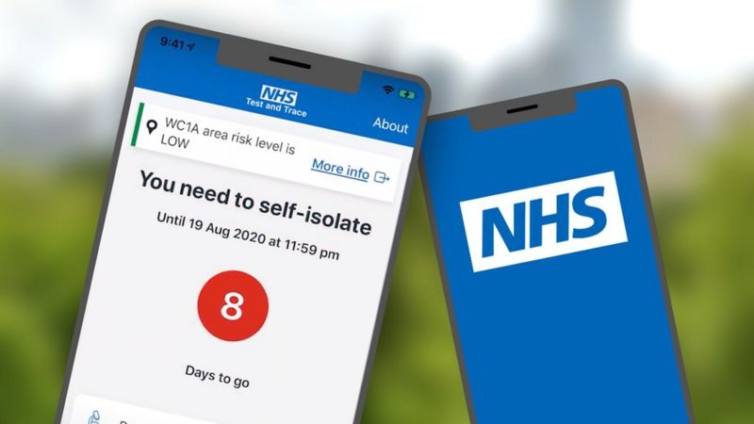People who are told to go into isolation in an alert from the NHS Covid-19 app in England and Wales will not be eligible for government support.
Anyone on low income who is instructed to self-isolate in a phone call from NHS Test and Trace can claim a £500 payment from their local authority.
Now the Department of Health has said the payments will not be available to app users, as reported by Sky News.
However, the government is exploring ways of changing that.
A spokesperson said: "The NHS Covid-19 app is voluntary with users of it remaining anonymous, which means that currently people are not eligible for the support payment if they are advised by the app to self-isolate."
For the love of all that’s holy, when will this government get its sh*t together?
— Nemo Outis (@NemoOutisUK) October 23, 2020
Covid is playing chess against a garden snail: a greedy pest; causes havoc at times; leaves a slimy trail of corruption wherever it goes & unable to think two steps ahead https://t.co/aOEZl3Y07V
When the app was rolled out a month ago, there was at first some confusion about whether its alerts to users who had been in close contact with an infected person, would be legally enforceable.
But eventually the government conceded that, as there was no way of knowing who had received these alerts, obeying their instructions would be voluntary.
People who are contacted by NHS Test and Trace and told to self-isolate, face fines of up to £10,000 if they fail to comply.
The NHS Covid-19 app is built on a framework designed by Apple and Google, which is designed to give as little data as possible to governments and health authorities.
A previous version of the app which would have seen more data collected centrally, was abandoned after concerns were raised by privacy campaigners.
The Department of Health says it is "actively exploring' ways of expanding the £500 support scheme to include app users.
But it is not clear exactly how this could be done without compromising the anonymity which is guaranteed to users when they install the app. There will also be concern that offering payments to app users who are sent isolation alerts may encourage fraud.
More than 18 million people have installed the NHS Covid-19 app since it was rolled out in England and Wales on 24 September. Similar apps were made available earlier to people in Scotland and Northern Ireland.
Latest Stories
-
‘IMF targets will be irrelevant by 2028’ – Bright Simons warns against programme exit
11 minutes -
‘Early IMF exit makes for great optics, bad economics’ – Bright Simons warns of premature celebration
43 minutes -
Benin admits that 54 soldiers killed in attack by al-Qaeda group
2 hours -
Stress doesn’t just affect your bladder. It can hijack your overall health
2 hours -
ASFC 2025: ‘I look up to Neymar’ – Ghanaian youngster John Andor
3 hours -
The dilemma of Mohammed Kudus: Prestige in Europe or big money in Saudi Arabia?
3 hours -
ASFC 2025: ‘We didn’t come to play’ – Ghana coach cautions South Africa ahead of semis clash
3 hours -
ASFC 2025: Ghana boys face last year champions Tanzania in semifinals
4 hours -
ASFC 2025: Ghana girls set up semis clash with defending champions South Africa
4 hours -
Tanzania bans South Africa and Malawi imports as trade row escalates
5 hours -
China tells Trump: If you want trade talks, cancel tariffs
5 hours -
Gwyneth Paltrow eating bread and pasta after ‘hardcore’ food regime
5 hours -
Strong Institutions, not Strong Men: UPSA forum urges tech-driven reforms to curb tax revenue leakages
5 hours -
Police fatally shoot man at Toronto’s international airport
5 hours -
Health of Brazil’s ex-president Bolsonaro has worsened, doctors say
5 hours

